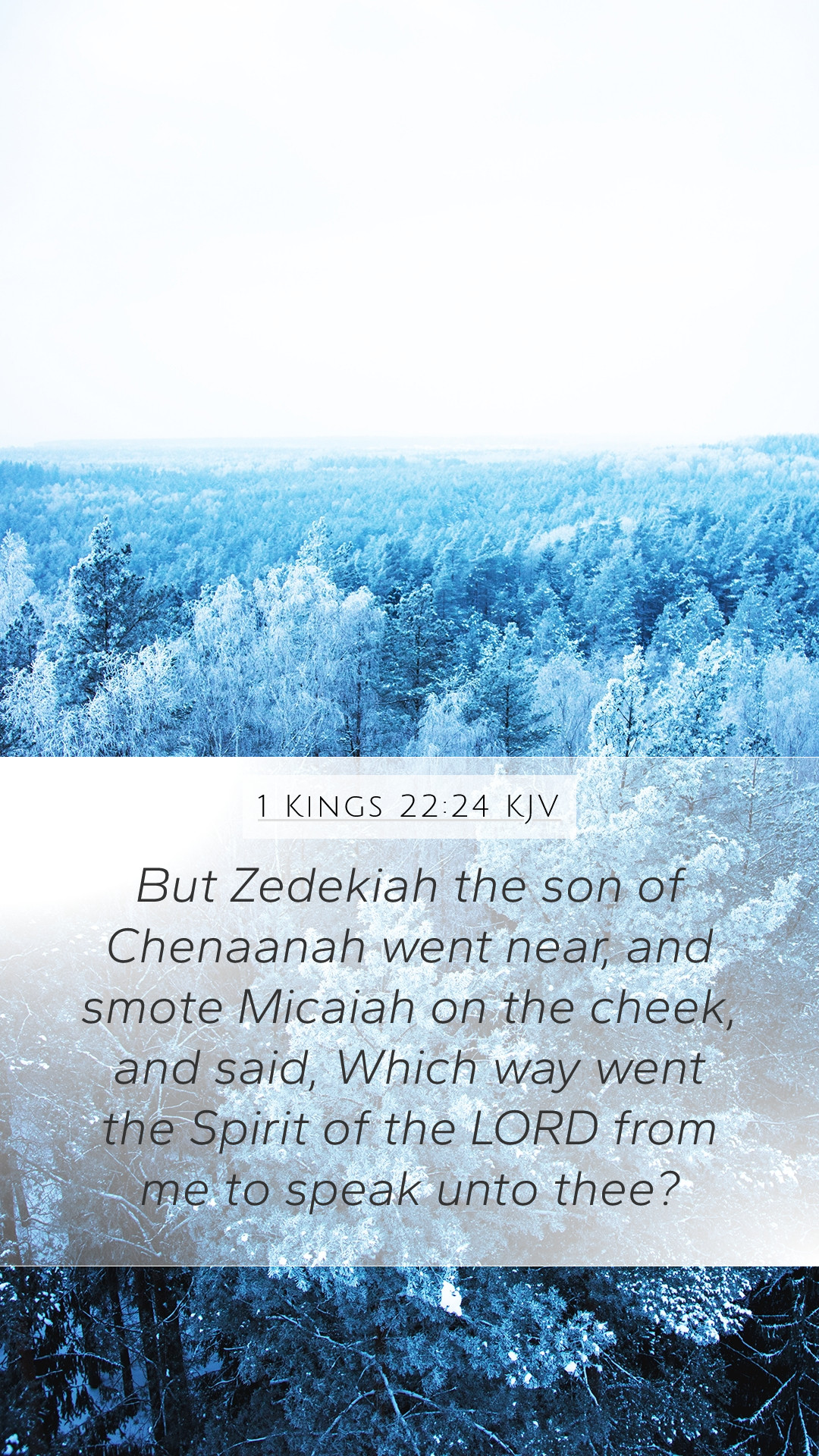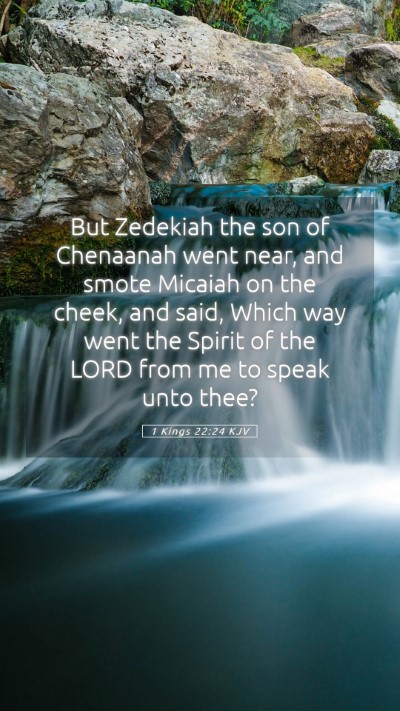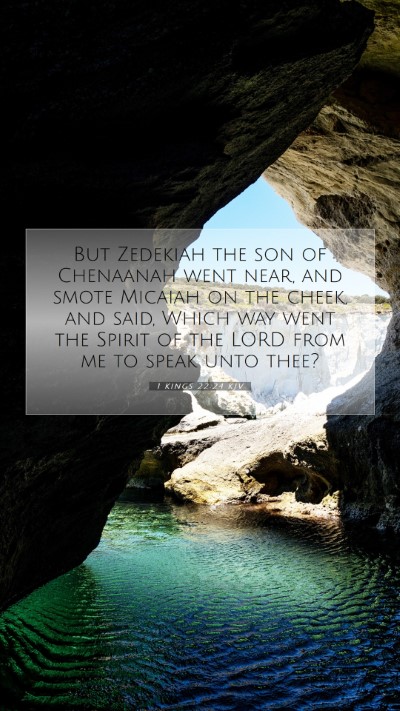Understanding 1 Kings 22:24
Bible Verse: 1 Kings 22:24
Verse: “But Zedekiah the son of Chenaanah went near, and smote Micaiah on the cheek, and said, Which way went the Spirit of the LORD from me to speak unto thee?”
Bible Verse Meanings and Interpretations
In this passage, we witness a confrontation between Zedekiah and Micaiah, illustrating the tension between true prophets and false prophets. Micaiah, a faithful prophet of God, speaks the truth about Ahab’s impending doom, while Zedekiah represents the false prophets who deceive the king for personal gain. This verse serves as a pivotal moment that highlights the conflict between divine revelation and human opposition.
Key Insights from Public Domain Commentaries
Matthew Henry's Commentary
-
False Prophets: Henry emphasizes that Zedekiah's gesture of violence towards Micaiah signifies the hostility towards true prophecy. Zedekiah, by striking Micaiah, displays how the false prophets often react when their deceit is challenged.
-
Defense of Truth: Micaiah's boldness in delivering God's message illustrates the courage required of those who proclaim the truth, even in the face of physical danger.
Albert Barnes' Notes on the Bible
-
The Spirit of the Lord: Barnes explains that Zedekiah's question poses a challenge to Micaiah, indicating his disbelief in Micaiah’s prophecies, suggesting that only he, Zedekiah, truly had the spirit of God with him.
-
Mockery of Prophetic Authority: This act of violence also serves as a mockery of divine authority, showcasing how false prophets manipulate spiritual power to maintain their influence over kings.
Adam Clarke's Commentary
-
Context of the Incident: Clarke places this event within the broader narrative of Ahab’s request for counsel about going to battle, stressing that Zedekiah's act was not merely a physical assault but an implication of defeat against Micaiah’s spiritual authority.
-
Character of the Prophets: He underscores the character of true prophets versus false prophets, presenting a moral lesson on discerning true divine counsel amidst prevalent falsehoods.
Key Themes and Takeaways
-
The Cost of Prophecy: The verse highlights the dangers faced by true prophets, as Micaiah's life is threatened for speaking against the popular narrative.
-
The Nature of Conflict: It illustrates the conflict between truth and deception, a common theme throughout Biblical narratives.
-
Discernment in Leadership: Leaders must discern who speaks the truth among those who masquerade as spiritual guides, underscoring the importance of wisdom in leadership decisions.
Cross References
- 2 Chronicles 18:23 - The conflict between Micaiah and the false prophet.
- Matthew 5:10 - Blessed are those who are persecuted for righteousness’ sake.
- 1 Kings 22:8 - King Ahab's disdain for Micaiah’s prophecies.
- Jeremiah 23:25-32 - God's warning against false prophets.
- 1 Thessalonians 5:20-21 - Do not despise prophecies, but test everything.
Conclusion
This analysis of 1 Kings 22:24 sheds light on the broader struggle between the truth of God’s word and the entrenchment of falsehoods within religious leadership. It encourages readers to seek the true Spirit of the Lord in their discernment of Biblical messages and the voices they listen to, providing critical Bible study insights that apply to modern believers facing similar challenges in understanding Scripture.


